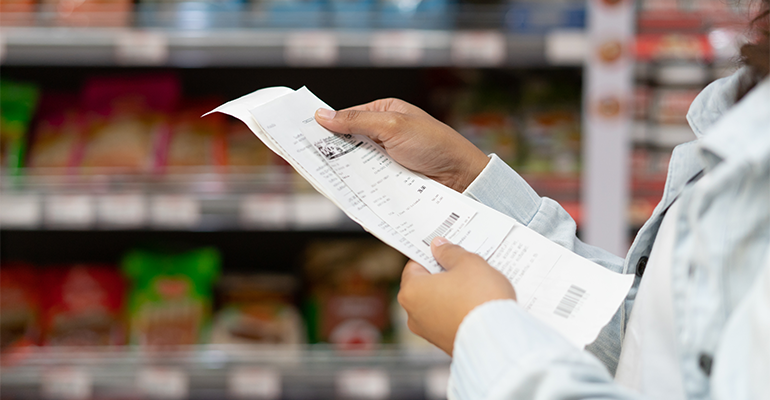News
Price sensitivity driving consumer shift to private-label solutions
9 Aug 2022
Rising inflation and ongoing supply chain issues are driving shoppers to switch to own-label products, with private label outperforming brands in certain categories, say experts.
As inflation and increasing food prices continue to dominate global headlines, shoppers feeling the pinch are shifting to own-brand products faster, according to reports.
“The data clearly indicates that shoppers have become more price-sensitive and value-driven in recent months,” said Sean Murphy, chief data and analytics officer at Catalina, a US-based shopper intelligence company.

According to Catalina's Shopper Intelligence Platform, categories showing the biggest gains for private brands year to date include baking mixes (up 40%), soup (up 17%), prepared foods (up 12%), dried vegetables (up 11%), canned fish (up 10%), cereal and baby food (both up 6%), and deodorant (up 4%).
“While the pandemic-fuelled trend of scratch baking has declined, baking mixes remain popular, with shoppers increasingly opting for store-brand mixes,” Catalina said, noting that as more consumers return to the office, purchases of affordable personal grooming items and prepared foods were on the rise.
“The rise in unit sales of store-brand staples like canned fish and soup indicates consumers are [also] looking for affordable lunch and dinner solutions,” the firm said, adding that private brand alternatives were benefiting from price spikes of between 10-11% for brand-name cereal.
Meanwhile, data from Kantar showed that grocery inflation hit 8.3% in the UK for the four weeks to 12 June. The company said that retail sales of branded items fell 1.0% over the same four weeks versus last year, while sales of own-label products rose 2.9%.
The company added that based on its latest data, the average annual grocery bill in the UK is on course to rise by £380 ($465).
"This is over £100 more than the number we reported in April this year, showing just how sharp price increases have been recently and the impact inflation is having on the sector," said Fraser McKevitt, head of retail and consumer insight at Kantar.
Private label claims market share in dairy and drinks as inflation hits
Additional data from Kantar shows that private-label wines, spirits, and ready-to-drink (RTD) drinks are outperforming branded products.
Data from the firm showed that the overall UK drinks market declined in the 12 weekends to 10 July, down 11.6% on last year’s figure to £3.345m. However, it noted that private label outperformed branded drinks – particularly for sparkling wine, wine, and spirits – with overall branded sales down 12.5%, compared with only 9.3% of private label.
Private-label RTDs were the only category to rise, said Kantar, with sales up 8.3% for own brands, while branded products fell by 17.5% – meaning a total RTD decline of 11%, driven by a switch away from big brands.
Meanwhile, insights from GlobalData suggest that dairy, in particular, is a category that remains easy for consumers to “trade down” to own-label solutions, with the trend most pronounced in the UK and Europe.
“Dairy is a relatively easy category for consumers to trade down due to the simpler nature of products such as butter, milk, and yogurt, which are harder to distinguish in terms of taste across private label and branded,” Honor Strachan, a retail analyst at GlobalData, told Just Food.
“Dairy items also make up a significant proportion of everyday essentials, so consumers are unlikely to stop spending on the category, safeguarding it versus more discretionary categories.”
Strachan singled out premium cheeses and premium dessert-style yogurts as likely candidates to experience reductions in volumes and greater switches to own-label products, as shoppers cut back and prioritise their spending power on more affordable alternatives.
Can brands cut costs… but remain premium?
Speaking to MarketingWeek, Mark Field, director and founder of Prof. Consulting Group, pointed out that fast-moving consumer goods (FMCG) brands generally perform better at the premium end of the retail and grocery market, warning that brands should not try to compete with private-label brands at the lowest end of the price spectrum.
“If you’re a brand owner, why would you want to be positioned as the entry tier?” he asked. “I would really question what the benefits would be for you.”
However, Field warned that brands will still need to be mindful of costs, adding that those which work to minimise the cost to customers will come out on top.
“It really challenges the FMCG brands to ask, ‘what tools are there to enable us to take costs out of our supply chain?’, so that when we do need to pass the cost on to the consumer, it’s a minimum increase,” he said.
Measures that Field suggested brands should be looking at include putting products in less packaging and focusing on reducing waste in the supply chain.
